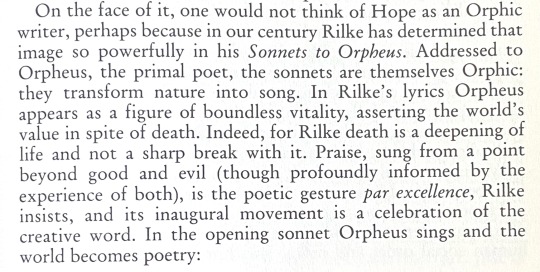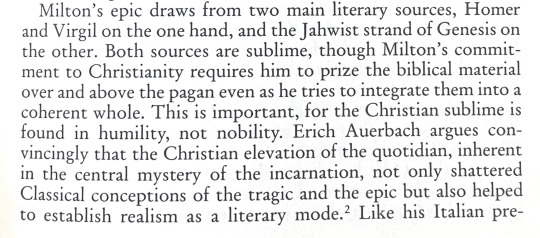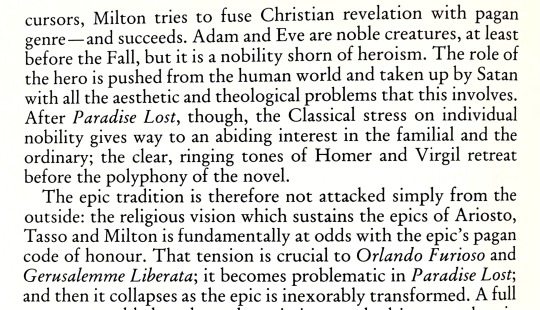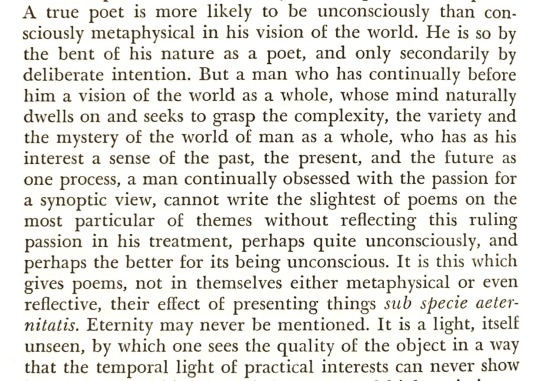Text
Responses to 'Final Theory' by Bonny Cassidy, 2014
Martin Duwell (Australian Poetry Review)
A generally post-poundian poetics.
The fear of an unproblematic, experiencing self at the heart of lyric poems leading, at its worst to a sort of bland “Georgianism”. Getting the conventional lyric self out of the poetry becomes an imperative, buttressed by later notions of the self as, psychologically, an illusion even, in a kind of no-holds-barred leftism, a “bourgeois fantasy”.
Sometimes poems later in the book have that frozen-in-time visual quality that recalls the Imagists – the first of Pound’s many attacks on the humanist lyric of his day.
As often in the case of such poems, the situation is only sketched in and the result can be either that readers have the sensation of “take it or leave it” or the entire thing is too delphic to unravel.
Helen Hagemann (Plumwood Mountain Journal)
It is certainly not lyric poetry, but more post-avant.
It is tempting to delve deeper into this collection in order to understand the literal level of the poetry. However, in the light of the above that we are dealing with post-avant poetry, this is not possible
The obscure nature of this radical poetry.
Eleanor Smagarinsky - Writing NSW
On first reading, these poems feel frustratingly opaque and your head begins to spin.
These challenging free verse poems might turn some readers away with their opacity and somewhat repetitious descriptions of deserted landscapes.
Chloe Wilson - Mascara
When taken as a whole, it is enigmatic, visually striking, and unsettling, and I imagine it will appeal strongly to some readers while baffling others.
0 notes
Text
Paul Dean reviews John Burnside
But then there is the contrast of styles, the prose muscular and metaphorical, the poems aiming for delicacy and grace but often achieving only insipidity. Nor does Burnside always make sense, which we surely have a right to expect of a poet however difficult or obscure.
So many of Burnside’s line breaks are pointless.
I suspect that part of Burnside’s appeal is to the fashionable yen for the vaguely spiritual: uplift without tears.
I do not doubt that John Burnside is sincere. He is not a con-merchant as so many contemporary scribblers are. His life has been marked by suffering, and he has come through. He certainly believes he has something to communicate about the world and our place in it, and he must believe that he has communicated it. To me, at least, he has not.
(Poet in Limbo, The New Criterion, April 2017)
Dave Coates on 'Black Cat Bone' by John Burnside
The padding that fills out the book is all the usual cream-filled humbug that people make fun of when they say they don’t like poetry, and they need only point to the consistent lack of emotional engagement with the world conjured up to be fully justified.
These are characters with their humanity dampened and this is a narrator with unchallenged power over its subjects. His women are silent, controlled, and lifeless. These several poems are a particular struggle.
Dave Coates on 'All One Breath' by John Burnside
It has many of the poet’s signature features: self-reflection both literal and conceptual, nature as pathetic fallacy, other humans as pathetic fallacy (‘her face was all / reflection’), ‘dusk’ as indicator of liminal space, an ending that elides all semantic responsibility by literally/grammatically qualifying itself out of reasonable accountability.
It’s totally reasonable to describe an experience as ‘half-imagined’, but doing it twice in the same collection . . . speaks to a narrowness of imaginative range, the poet as primary custodian of common sense and meaning.
Nature does not appear in its own right . . . but as background colour for the performing poetic self.
0 notes
Text
Michael Brennan on Claire Potter
Not so much Bahktinian as echoing Blanchot’s conception of literature, Potter states that her poetry is “completely dialogic”, forming a conversation with the work of other poets, writers, artists and film-makers. Each book she writes follows an architecture aimed at creating a space in which this conversation might evolve. While her basic approach to poetry – shape over form, sound over lyric – often leaves her work less than ‘immediate’ in the way of Romantic or Modernist forms of lyricism, strains of European and Australian lyricism are apparent parts of the conversation she has entered into. She is in a line of Australian poets, running back through Kevin Hart and A.D. Hope, and resonant with Keats and Shelley, while creating a poetry itself perhaps more akin in tone to a layering of Antigone Kefala and Francis Webb, with Dickinson, Celan and Mallarmé. For that, perhaps her closest interlocutor in many ways is the remarkable contemporary American poet Andrew Zawacki, alongside whose work Potter's poetry can be in many ways favourably measured.
Potter is methodological in her approach to the writing of poetry, layering a range of interlocutors across the shape of the page, creating a polysemous work textured by its reading – academic, poetic, experiential and otherwise. While this is nothing unusual in itself in contemporary Australian poetry – think of poets as varied as John Tranter, L.K. Holt, or Michael Farrell – Potter’s work is emerging as an interesting addition for her gifts in cross modulation and counterpoint, not least in terms of her conscious working and weaving of the symbolic and the semiotic that brings to mind Soller’s “double causality” that Kristeva developed as “simultaneously ‘outside’ and ‘inside’ the subject, divided in such a way that the subjective ‘unity’ in question is expended, expending, irreducible to knowledge, ‘bordered’ by laughter, eroticism, or what might be called the ‘sacred’”. With discussions recently heating up over the re-emergence of the lyric as a central form in Australian poetry, with especial emphasis placed on the perceived rise of a generation of young female poets (baroquely dubbed by one critic as “The ladies of the lyric”), and the question Pam Brown raised whether this “re-emergence” is “a reaction against the innovations of postmodernism and the resultant north American, but globally influential, L=A=N=G=U=A=G=E poetry movement that had its heyday over 20 years ago”, Claire Potter’s work manages to fit into none of the hastily arising camps.
While commenting on the “new lyricism” in Australian poetry, Potter noted, “I don’t see myself as part of the young (female) lyricist movement supposedly emerging in current Australian poetry scenes. I was born in the seventies, a decade before this, and I read only a few young poets . . . My writing is not so immediate as the new-lyricist poets, but I have read only so little of their work, I am hardly qualified to comment. I find the word fashionably used, a lyrist to me is someone who has to be at least over 50. There is something grave about the term. Something Orphic rather than Sapphic.” More Sapphic than Orphic itself for its passions, playfulness and fragmentation, Potter’s work appears to take Kristeva’s revolution in poetic language, which inspired much of the innovative work of the L=A=N=G=U=A=G=E school, as a starting point to a conversation in which, going on Potter’s definition of poetry and considerable work so far, much may yet remain to be said.
https://www.poetryinternational.com/en/poets-poems/poets/poet/102-15572_Potter
0 notes
Text
Toby Fitch on Emily Stewart’s ‘Running Time’
Running time’s syntax refuses conventional poetic devices (like musty metaphor, misty description, high diction, traditional stanzas, heartfelt elegy, starry-eyed ode, precious personification), basic devices that, let’s be honest, are having their heyday again, and that usually perform a guaranteed intensity, the way any genre trope (yes, poetry uses genre tropes too) sets you up to feel things you know you’re going to feel.
There’s a tension between Frank O’Hara-the-art-poet-guru’s manifesto of ‘go on your nerve’ and Stéphane Mallarmé-the-French-aesthete’s doctrine of ‘ceding the initiative to words’. This tension isn’t mutually exclusive but rather symbiotic, emphasising the dialectic between lived experience and representation.
http://cordite.org.au/reviews/fitch-stewart/
0 notes
Text
On Rilke as an Orphic poet (from A.D. Hope by Kevin Hart 1992)


0 notes
Text
Wallace Stevens
The deepening need for words to express our thoughts and feelings which, we are sure, are all the truth that we shall ever experience, having no illusions, makes us listen to words when we hear them, loving them and feeling them, makes us search the sound of them, for a finality, a perfection, an unalterable vibration, which it is only within the power of the acutest poet to give them.
The Noble Rider and the Sound of Words (1941)
0 notes
Text
T.S. Eliot - On Poetry and Poets
(FABER AND FABER 1969)
THE SOCIAL FUNCTION OF POETRY 1945
In an homogenous people the feelings of the most refined and complex have something in common with those of the most crude and simple which they have not in common with those of people of their own level speaking another language. 20
The duty of the poet, as poet, is only indirectly to his people: his direct duty is to his language, first to preserve, and second to extend and improve. 20
If we have no living literature we shall become more and more alienated from the literature of the past . . . Unless we have those few men who combine an exceptional sensibility with an exceptional power over words, our own ability, not merely to express, but even to feel any but the crudest emotions, will degenerate. 21
It makes a difference to the speech, to the sensibility, to the lives of all the members of a society . . . to the whole people, whether they read and enjoy poetry or not. 22
If you follow the influence of poetry, through those readers who are most affected by it, to those people who never read at all, you will find it present everywhere. 22
THE MUSIC OF POETRY 1942
No verse is free for the man who wants to do a good job . . . Only a bad poet could welcome free verse as a liberation from form. 37
The poem comes before the form, in the sense that a form grows out of the attempt of somebody to say something. 37
A poem, or a passage of a poem, may tend to realize itself first as a particular rhythm before it reaches expression in words, and . . . this rhythm may bring to birth the idea and the image. 38
WHAT IS A CLASSIC? 1945
A classic can occur only when a civilization is mature; and when a language and a literature are mature; and it must be the work of a mature mind. 55
A writer who individually has a more mature mind, may belong to a less mature period than another, so that in that respect his work will be less mature. 55
We cannot say that any individual poet in English has become a more mature man than Shakespeare. 56
Complexity for its own sake is not a proper goal: its purpose must be, first, the precise expression of finer shades of feeling and thought; second, the introduction of greater refinement and variety of music. 59
We cannot see English literature as a whole, or aim rightly in the future, without a critical appreciation of the degree to which the classical qualities are exemplified in the work of Pope: which means that unless we are able to enjoy the work of Pope, we cannot arrive at a full understanding of English poetry. 60
In the Divine Comedy, if anywhere, we find the classic in a modern European language. 60
THE THREE VOICES OF POETRY 1953
The most bungling form of obscurity is that of the poet who has not been able to express himself to himself; the shoddiest form is found when the poet is trying to persuade himself that he has something to say when he hasn’t. 99
0 notes
Text
Simon Patton on Lucy Dougan
T. S. Eliot’s well-known theory of the objective correlative — “a set of objects, a situation, a chain of events which shall be the formula of that particular emotion” — may be an influence here. Eliot’s idea may help to explain several conspicuous features of Dougan’s poetry. First of all, there is the general staidness of the language. It seems that verbal excitement of any kind is equated with an undesirable emotionalism and so is suppressed in favour of an objective “formula”. This restraint is clearly present in the poetry’s presentation of objects, often characterized by a fairly banal use of adjectives.
This subordination of detail to design has the advantage of focusing the reader’s attention on what the back-cover blurb calls “cumulative effects”, but at the same time results in a lack of intensity, since the images are often generic and anonymous rather than keenly perceived and registered. This in turn ultimately weakens the overall appeal of the work, even when the design is strong.
https://rochfordstreetreview.com/2015/11/17/poetry-as-needlework-simon-patton-reviews-lucy-dougans-the-guardians/
0 notes
Text
William Logan on Kevin Young
Young is a competent, unexciting poet of a familiar sort. Blind to their own deformities, these bland poems plonk along like Pooh in the woods, never sure where he’s going and not too sure where he’s been. The poetry lies within Young—he’s just unwilling to drag it out.
https://newcriterion.com/issues/2022/6/companions-of-the-past
0 notes
Text
Simon Patton on Antigone Kefala
Kefala is not really interested in condensation. Instead, her approach involves suggestiveness: the reader is made to discover the full sense of the poem in trying to reconcile the two seemingly disjointed parts. Bound up with this is a concern for atmosphere: it is the mood of the poem — formed by the spare diction, by the overall tone, by the choice of images — rather than any densely-packed meaning that contributes most to her power as a poet.
Kefala creates memorable short poems that are just uncanny enough to unsettle you about what can happen to us in our twilight years. Their success depends largely on the contrast between a simplification of rhythm, diction, and grammar on the one hand, and an intensification of strangeness and suggestiveness on the other. This technique courts a couple of dangers: firstly, the integrity of individual lines is weakened by the lack of content and the almost constant enjambment; secondly, the deliberate soft focus so essential to atmosphere can sometimes slacken.
Because Kefala simplifies so many of the poetic resources available to her in a bid to intensify mood, the lines in Fragments rarely achieve sufficient distinctness to make them memorable. It is primarily this that gives them their fragmentary quality. The suggestive minimalism of the lines and the absence of strong syntactic connections can yield incoherence. Sometimes, in the effort to compose a striking image, Kefala pushes hard to bring disparate associations together.
https://sydneyreviewofbooks.com/review/in-short-measures-antigone-kefala-fragments/
0 notes
Text
Simon Patton on David Malouf
The American painter Andrew Wyeth once said that his aim was not ‘to exhibit craft but rather to submerge it’, so that it served his efforts to express ‘beauty, power, and emotional content’. An Open Book demonstrates the difficulties an unsubmerged devotion to poetic technique can run into.
It would seem that the noble pursuit of formal perfection can lead a writer to relegate experience to a secondary position and, in some cases, actively set out to minimize it so that it doesn’t get in the way of the linguistic flourishes, the dazzling flashes of wit, the erudite cultural gestures.
https://plumwoodmountain.com/simon-patton-reviews-an-open-book-by-david-malouf/
0 notes
Text
Simon Patton on John Kinsella
The quality of poetic thought in Armour is erratic. To a significant extent, it borrows the prestige of technical and specialist realms, while using devices that obscure meaning with the aim of suggesting a profundity beyond the commonplace. Despite the flexibility and richness of Kinsella’s associative powers, thought remains largely undeveloped, unassimilated, disembodied. It is one thing to have ideas, but another to communicate them lucidly to a reader.
According to the back cover blurb, Armour is Kinsella’s ‘most spiritual work to date’. After numerous readings of the book, I have been unable to locate anything that I recognise as a spiritual dimension in Kinsella’s poetic thinking.
https://sydneyreviewofbooks.com/review/bully-proof/
0 notes
Text
John Kinsella
I also remain afloat
- an ibis - riding the crests
and troughs of a changing surface,
settling on aspects of thought,
treading lightly the outskirts.
(Ibis, in Eschatologies 1991)
0 notes
Text
Toby Fitch on ‘Suns’ by Tim Wright
The poem could be taking place over one sitting in one big sunspot-like brainstorm, or it could be taking place over many weeks or months of accumulating observations and collaging them together. The poem explores a form of language creation (and thinking) that is contingent on mobility, relationality, process and transformation. The act of composition becomes the experience and the experience becomes the writing process, or rather, that dialectic is blurred, creating a pleasurably blinding reading effect/affect.
https://meanjin.com.au/blog-what-im-reading/what-im-reading-fitch/
0 notes
Text
William Logan reviews John Ashbery
All along he has been writing poems the way a butcher stuffs sausages.
His early books (and the occasional outlier later, like Flow Chart [1991]) were rip-roaringly avant-garde, but soon he nestled into a cozy absurdist style like a pair of bunny-rabbit slippers.
The tension between the coherence of the parts and the sheer nonsense of the whole has informed Ashbery’s career, which puts him in a long line of American charlatans and Ponzi schemers.
For those who like Ashbery’s silliness—delivered with the aw-shucks, gee-willikers grin of a Gomer Pyle flâneur—there are poems enough here. The best have a tale sputtering beneath the surface of comprehension, never to be spoken. Many poems seem a bit more discombobulated than usual, as if the dark matter that once provided invisible glue had dried up.
https://newcriterion.com/issues/2017/6/hither-yon
0 notes


